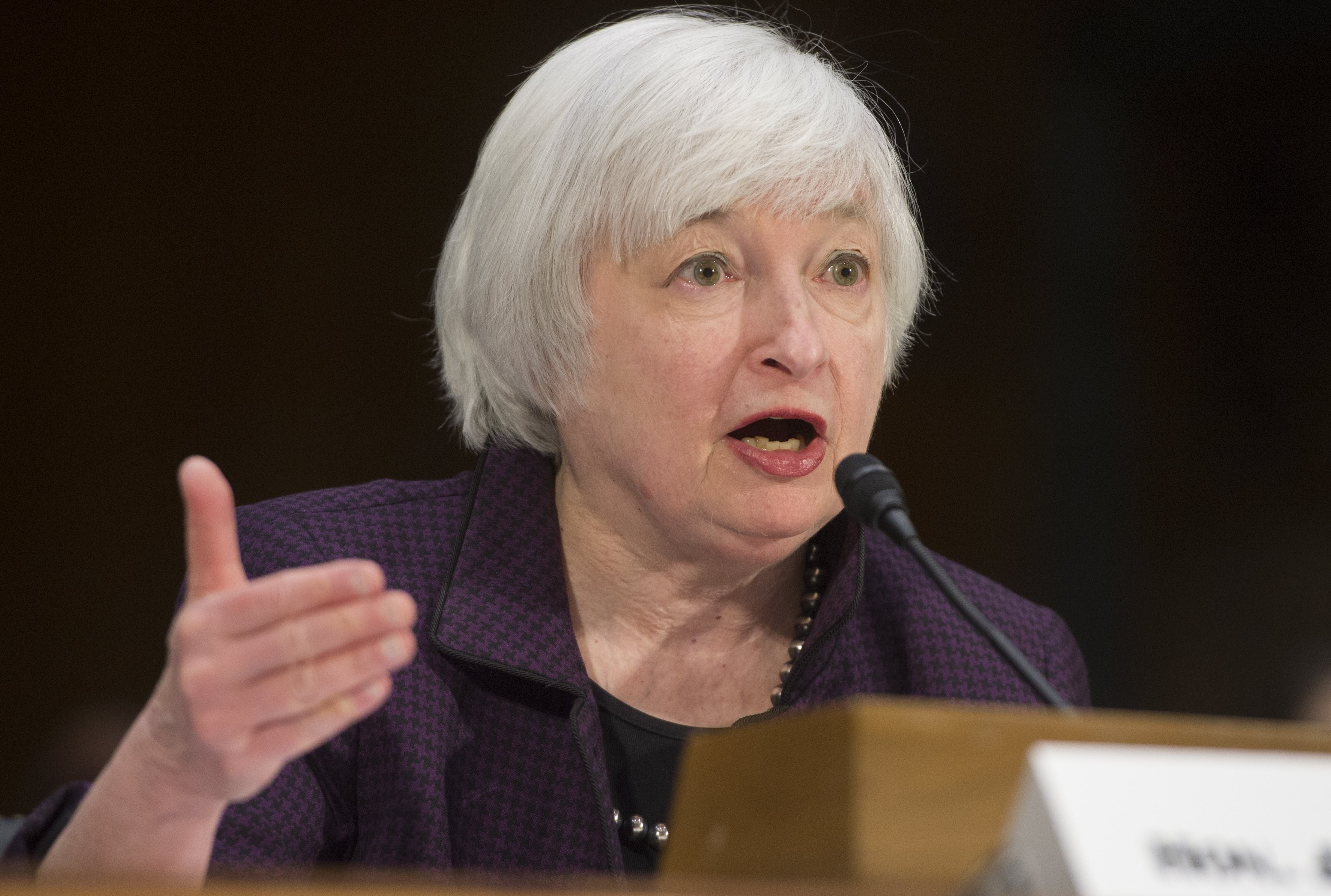![These U.S. stocks clobbered by Brexit [video : 86343530]](http://videos.usatoday.net/Brightcove2/29906170001/2016/06/29906170001_4984472119001_4984410447001-vs.jpg?pubId=29906170001)
The Brexit vote could prompt the Federal Reserve to delay hiking interest rates amid predictions of a global slowdown resulting from the United Kingdom's exit from the European Union.
“Given the Brexit vote we push back the timing of the next Fed hike from September to December 2016,” wrote Lewis Alexander, an economist at Nomura, Friday in an investor note. The Brexit outcome “was not expected and financial markets have responded dramatically.”
The Brits’ decision to leave the EU, rendered in a national referendum Thursday, triggered selloffs in financial markets worldwide. The Dow Jones Industrial Average is down 3% Friday. The British Pound tumbled to its 30-year low, and the dollar is up about 3% against major currencies.
Many multinational companies and global banks have used the U.K. as its gateway to the European market. But they’re now expected to shrink their presence in the country as its unfettered access to the continental economy will likely shrink. Alarmed by the vote result, economists began immediately downgrading the U.K.’s economic outlook.
Capital Economics, an economic research firm based in London, downgraded its 2016 U.K. GDP expansion estimate to 1.5% from its earlier estimate of 2.2%.
![U.S, businesses, institutions somber after Brexit vote [oembed : 86341534] [oembed : 86341534] [oembed : 86341534] [oembed : 86341534] [oembed : 86341534] [oembed : 86341534] [oembed : 86341534] [oembed : 86341534] [oembed : 86341534] [oembed : 86341534] [oembed : 86341534] [oembed : 86341534] [oembed : 86341534] [oembed : 86341534]](/Portals/_default/Skins/PrestoLegacy/CommonCss/images/smartembed.png)
With investors looking in their direction, central banks and finance ministers issued statements to calm the markets and express their willingness to take action, if needed.
The Fed said Friday it “is carefully monitoring developments in global financial markets, in cooperation with other central banks, following the results of the U.K. referendum on membership in the European Union.”
“The Federal Reserve is prepared to provide dollar liquidity through its existing swap lines with central banks, as necessary, to address pressures in global funding markets, which could have adverse implications for the U.S. economy,” it said.
G-7 Finance Ministers and Central Bank Governors also said Friday they were “monitoring market developments” and ready to take action with “the established liquidity instruments."
In an interview with CNBC, Alan Greenspan, former Fed chairman, was a lot more blunt in his assessment and expressed concern that the U.K.’s exit could prompt other European countries to begin considering independence or quitting the EU.
Brexit was just the “tip of the iceberg” and it could trigger a slowdown in Europe, he told CNBC. "I think this is a much more difficult problem than is being visualized by most people. What we’re looking at is a massive slowing in the rate of real incomes across the whole European spectrum…virtually every country slowing to a halt.”
![Major banks pounded by Brexit outcome [oembed : 86341564] [oembed : 86341564] [oembed : 86341564] [oembed : 86341564] [oembed : 86341564] [oembed : 86341564] [oembed : 86341564] [oembed : 86341564] [oembed : 86341564] [oembed : 86341564] [oembed : 86341564] [oembed : 86341564] [oembed : 86341564] [oembed : 86341564]](/Portals/_default/Skins/PrestoLegacy/CommonCss/images/smartembed.png)
In holding interest rates steady last Wednesday, Fed chair Janet Yellen said the Brexit referendum "was one of the factors that factored” into the decision.
“International uncertainty looms large here." She said then. The vote to exit the EU "could have consequences for the (U.S.) economy and financial conditions.”
The cautious tone came amid the Fed’s souring outlook for the year and the slowing of the labor market. Fed policymakers’ median forecast indicates they still expect two quarter percentage point rate increases this year, with the key rate ending the year at 0.9%, in line with their March estimate.
Nomura’s Lewis agreed that Brexit will “have an adverse impact on the US economy.”
Growth has accelerated in the second quarter but monthly data suggest that growth was more modest in May than it was in April, Lewis noted.
“Given the moves in currencies, official intervention is probably being considered,” Lewis wrote. “Beyond the direct impact on financial conditions, the sheer uncertainty over the outlook for the UK and European economies will be a drag on investment and growth here as well. These potential adverse effects on the US economy come at time when the US economy is not particularly robust.”
Follow USA TODAY media reporter Roger Yu on Twitter @ByRogerYu.
![Fed holds rates steady, sees more gradual hikes [oembed : 86341576] [oembed : 86341576] [oembed : 86341576] [oembed : 86341576] [oembed : 86341576] [oembed : 86341576] [oembed : 86341576] [oembed : 86341576] [oembed : 86341576] [oembed : 86341576] [oembed : 86341576] [oembed : 86341576] [oembed : 86341576] [oembed : 86341576]](/Portals/_default/Skins/PrestoLegacy/CommonCss/images/smartembed.png)
![The U.K. is out, Brexit passes [videoplaylist : 86327360]](http://videos.usatoday.net/Brightcove2/29906170001/2016/06/29906170001_4984653476001_4984614396001-vs.jpg?pubId=29906170001)


